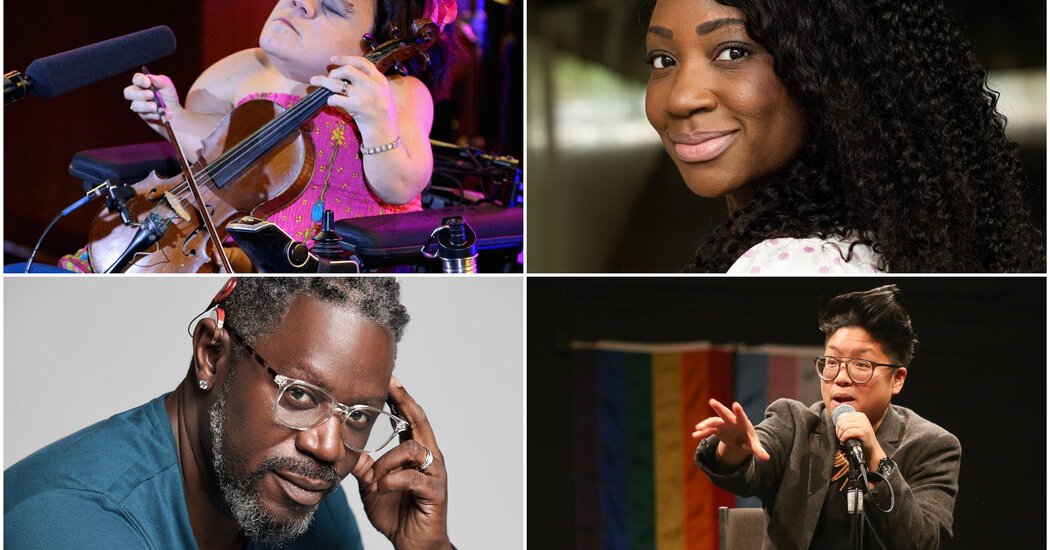The Ford and Andrew W. Mellon Foundations on Wednesday named the 2024 Disability Futures Fellows — the latest class of disabled writers, filmmakers, musicians and other creative artists who will receive unrestricted $50,000 awards.
This year’s recipients include Gaelynn Lea, a folk artist and disability rights activist; Natasha Ofili, an actress and writer who in 2020 became one of the first Black deaf actors to portray a video game character — Hailey Cooper — in Marvel’s Spider-Man: Miles Morales; Warren Snipe, a.k.a. Wawa, a deaf rapper and actor who performed in sign language at the 2022 Super Bowl; and Kay Ulanday Barrett, a three-time Pushcart Prize-nominated poet and essayist whose work focuses on queer, transgender people of color.
Lea said she almost missed an email telling her she got the award. “Because the email said, ‘We’re excited to offer you $50,000,’ it went to my spam,” Lea, 40, said in an interview. (She later received a follow-up email.)
“It’s very validating that I’m doing this stuff I really care about, and now it’s being recognized,” added Lea, who won NPR Music’s Tiny Desk Contest in 2016, and composed and performed original music for a Broadway production of “Macbeth” starring Daniel Craig and Ruth Negga. Lea plans to use the award to fund the writing of a memoir to be published next year.
The initiative, which is administered by United States Artists, named its inaugural class of fellows in 2020, with the goal of increasing the visibility of disabled artists and elevating their voices. (About one in four adults in the United States has a disability, according to the Centers for Disease Control and Prevention.) The second class was announced in 2022, and this is the last cohort in the program. The fellowship supports people at all stages of their careers.
Elizabeth Alexander, the president of the Mellon Foundation, said in a statement that the program reflected the foundation’s support of the “work, experiences and visions of disabled artists — both in their individual practices and in the collective power they wield in the arts at large.”
This year’s awards total $1 million. An initial pool of candidates was nominated by peer advisers who are disabled artists, and the final 20 recipients were selected by a jury of three.
Recipients have flexibility in how they spend the award and are not required to submit documentation. The grants offer flexible compensation options: The money can be distributed in a lump sum, in payments or even be deferred.
Cara Reedy, 48, who founded and directs an organization for disabled journalists, said she planned to use the money to offset expenses for her commuting between St. Louis and New York, which she said has been a financial strain. (She also produced a documentary short, “Dwarfism and Me,” for The Guardian in 2019.)
Also among the recipients are Finnegan Shannon, a Brooklyn artist who created “Anti-Stairs Club Lounge” — a space for visitors who cannot or choose not to go upstairs — in response to the inaccessibility of many galleries; Emily Sara, an artist and designer who is known for the 2019 Hyperallergic essay “Fighting the Art World’s Ableism”; and Gabriela Cruz, a transgender, Latina, immigrant drag performer known as Lady Paraiso.
Though this is the final year for the grants, Lea said the program would have an enduring impact.
“Making it more widely known in the mainstream society that disabled people are out there creating and rethinking the world in inventive and valuable ways because of who they are — not despite it — is powerful,” she said.
Read More: Ford and Mellon Foundations Name 2024 Disability Futures Fellows


